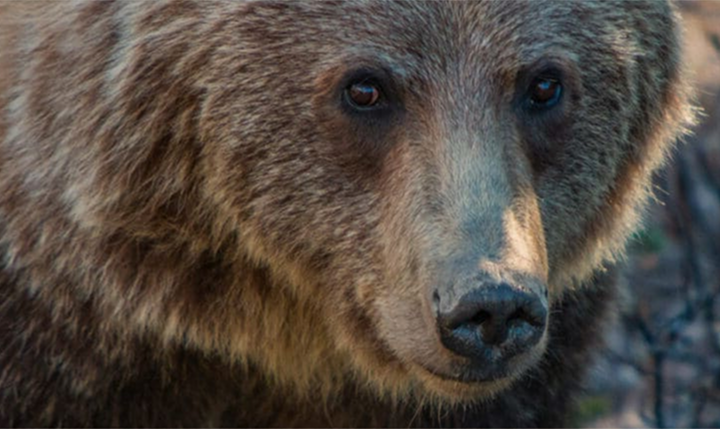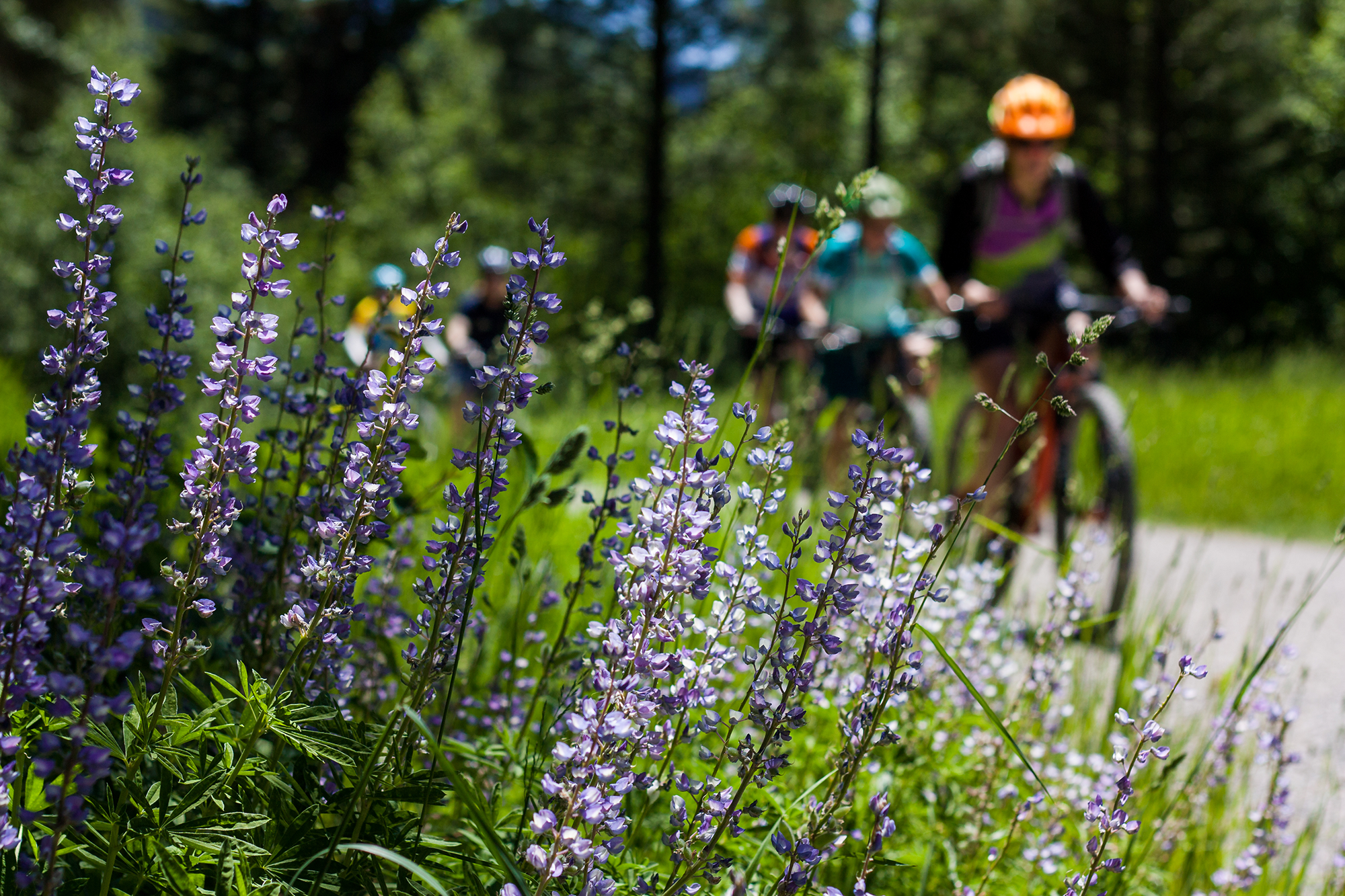Thanks to new habitat protections and Indigenous-led stewardship, endangered mountain caribou in northern British Columbia continue along their path to recovery
Spanning the northern foothills of the Rocky Mountains in the Peace River region of British Columbia — in the heart of the Yellowstone to Yukon region — you’ll find an incredibly special and important place known as the Klinse-za/Twin Sisters Park.
This is where two ancient mountains rise on the horizon. Known as the Twin Sisters, these mountains have always been a sacred site for Indigenous Peoples in the region and across North America.
The Klinse-za/Twin Sisters Park is near intact forests, productive valley bottoms, and breathtaking vistas; it is significant ecologically, culturally and spiritually. This vast landscape is home to many plants and animals and is characterized by awe-inspiring rolling mountain terrain and alpine peaks.
Less than a decade ago, mountain caribou in this area — a species vital to the ecosystem and to the way of life for Treaty 8 First Nations — were at risk of extinction. Today, collaborative Indigenous-led conservation and stewardship efforts have brought them back from the brink, restoring hope for this caribou herd and communities.
In June 2024, the Klinse-za/Twin Sisters Park underwent a significant expansion — to 75 times its original size (from 2,689 to nearly 200,000 hectares) — giving caribou a safe home and room to roam.
These landmark new habitat protections in northern B.C. support the ongoing recovery of the Klinse-za caribou herd and other sensitive wildlife species in the area, better protect these sacred sites for local Indigenous communities, and show us what’s possible when we come together to affect positive change.
How a herd of mountain caribou has been saved
The world-renowned Klinse-za caribou herd recovery initiative, led by the West Moberly First Nations and Saulteau First Nations, is an example of what it takes to save an endangered species — all while restoring Treaty rights and protecting life-giving ecosystems for generations to come.
The Klinse-za/Twin Sisters Park expansion marks a significant milestone in this work and is a reflection of the incredible leadership role the two nations have taken in mountain caribou recovery efforts.
After decades of work, two First Nations, alongside community and partners, have brought the Klinse-za caribou herd from 38 animals in 2013 to nearly 200 in 2024. The expanded park was the missing puzzle piece that gives these caribou a chance to thrive in their natural habitat.
After decades of work, the two First Nations, alongside community and partners, have brought the caribou herd from 38 animals in 2013 to nearly 200 in 2024. The expanded park was the missing puzzle piece that gives these caribou a chance to thrive in their natural habitat.
Y2Y is proud to be a long-standing partner on the Klinse-za caribou herd recovery efforts. Over many years, we have played a key role in building support for the initiative through scientific research, fundraising, advocacy, community engagement, and storytelling, including helping to produce the short film, Caribou Homeland.
A successful model for wildlife recovery
In 2020, thousands of hectares of the Klinse-za/Twin Sisters Park were first protected as part of an historic caribou partnership agreement, protecting important habitat for caribou and other animals and giving them a place of safety to recover.
By many measures, the joint work of West Moberly First Nations and Saulteau First Nations, together with many partners and supporters, has become one of the world’s most successful caribou recovery programs. And it’s a model for species recovery that some Indigenous leaders have said is land-based reconciliation in action.
“It’s our collective responsibility to save endangered species like caribou, and West Moberly First Nations and Saulteau First Nations, alongside partners, have shown what commitment, collaboration, and meaningful action on the ground can accomplish,” says Tim Burkhart, Y2Y’s director of landscape protection.
The unprecedented success of the caribou partnership agreement is a product of a comprehensive approach to caribou recovery including habitat restoration, maternal penning initiatives, and, most importantly, habitat protection.
Through these efforts, the decline of the central group of this caribou herd has been reversed, and the population is now growing at an average rate of 15 percent per year.

Connecting and protecting habitats
The expanded Klinse-za/Twin Sisters Park in British Columbia, roughly a third the size of Banff National Park in Alberta, was designed specifically to create habitat that is abundant enough to bring the herd to a self-sustaining level.
“We know now that when the baby caribou are released from [the] maternal pen, they have a place to stand and a landscape that will support them going forward,” said Burkhart in The Narwhal.
Thirty-six other threatened and endangered species who call these landscapes home will also benefit from the protections, including a vulnerable population of grizzly bears, wolverine, bull trout, and fisher.
The expanded park also provides important connectivity within the Yellowstone to Yukon region, a continentally significant area and the most intact mountainous region in the world. It creates connections for wildlife moving between the northern Rocky Mountains and the Muskwa-Kechika Management area, as well as Kakwa and Monkman Provincial Parks and the Rocky Mountain National Parks.


Supporting Indigenous-led conservation
The Indigenous-led work to save the Klinse-za caribou herd is a model for saving endangered species everywhere. The Klinse-za/Twin Sisters Park has emerged as another inspiring example of the power of co-operation, of Indigenous-led conservation, and land-based reconciliation.
By supporting this work, we can continue to safeguard the incredible diversity of plants and animals in the Peace Region, across B.C., and throughout the Yellowstone to Yukon region so both people and nature can thrive.
People like you are part of this journey, and your actions make a difference for caribou and communities.
Be part of this hopeful success story by helping to boost awareness on Indigenous-led conservation efforts, sharing the film Caribou Homeland widely, and donating to help Y2Y continue to support the efforts to save caribou.
Yellowstone to Yukon Conservation Initiative Foundation (Y2Y) acknowledges the support of the Gencon Foundation, Liz Claiborne & Art Ortenberg Foundation, Mitsubishi Corporation Foundation for the Americas, Real Estate Foundation of British Columbia and the Sitka Foundation.






